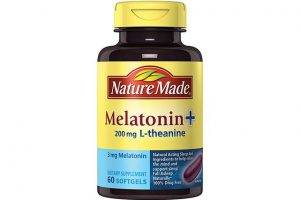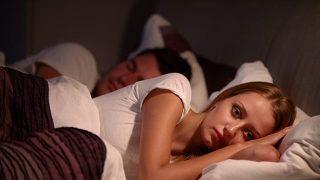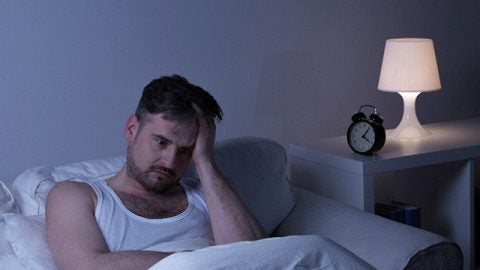Also known as the “sleep hormone,” melatonin is a substance that your pineal gland naturally released whenever your brain knows that it’s time for you to go to bed. Despite this being a natural occurrence, there are situations where your body fails to have the required amount of melatonin that helps it get ready for bed.
This can happen for a number of reasons: from exposing yourself to too much light before sleep to having to work night shifts that force you to sleep during the day. When your melatonin levels are low, you will have a hard time falling/staying asleep. But that’s where melatonin supplements kick in.
Why Take Melatonin Supplements
Melatonin supplements can boost the level of melatonin in the body, making up for what the pineal gland fails to secrete on its own. These supplements, while not recommended for permanent used, are a good short-term solution that can help regulate a person’s sleeping patterns, particularly in cases such as:
- Different studies have been conducted to see whether or not melatonin supplements can be efficient in helping people with insomnia.Evidence suggests that melatonin supplements reduce the time it takes for a person with insomnia to fall asleep, but also increases sleep duration.
- These supplements can also help with different sleep disorders and can be useful for people who have trouble sleeping, those who fall asleep too early and wake up in the middle of the night, those who sleep at a different time each day, and so on.
- Scientific evidence also tells us that melatonin supplements can help regulate circadian rhythms in blind children and adults.
- Melatonin supplements are also efficient in helping people with disrupted sleep schedules, such as those who are experiencing jet lag, have to work night shifts and sleep during the day, are going through periods of stress and anxiety, etc.
You may be interested in: Best Melatonin Supplement That’s Safe for Children
Insomnia Classification
Melatonin supplements are mostly used to regulate a person’s disrupted sleep-wake cycle, but also serve in treating insomnia. Since the safe dosage for melatonin differs depending on the sleep condition you’re trying to overcome, it’s important to understand the differences between the two main types of insomnia.
People who suffer from primary insomnia don’t have an underlying medical condition that could cause it.
Secondary insomnia, on the other hand, reflects another health condition that’s preventing someone from sleeping the way they should. These conditions can be anything from consuming too much alcohol, having depression, breathing problems, heartburns, cancer, allergies, but can also be a side effect of certain medications they’re taking.
Insomnia is also characterized by length and frequency. People who suffer from short term insomnia are referred to as having acute insomnia. This can be caused by a series of factors, including:
- Passing through a troublesome period: problems at work/school, mourning over a loss, moving to a different home, divorce, etc.
- External factors that interfere with the quality of the sleep environment: excessive temperatures, too much noise/light, etc.
- Medications that have insomnia listed as a potential side effect, such as those for hypertension problems, depression, allergies, cold medication, etc.
Chronic insomnia is characterized by long-term sleeping problems, which can either persist on a consistent basis or can come and go. People who have acute insomnia can have trouble sleeping for a week, then sleep peacefully for a couple of weeks, then have trouble sleeping again. Chronic insomnia is usually triggered by anxiety, depression, stress, or nocturnal pain and discomfort.
You may want to check out: Using Melatonin Supplements for Sleep
Melatonin Dosage for Adults
Learning the recommended dosage for melatonin supplements is important, particularly if you live in a country where these are an over-the-counter sleep aid, and they do not require a medical prescription upon purchase. When a doctor prescribes you a certain drug, they also tell you exactly what the recommended dosage is. Otherwise, here is some information that can help:
- Adults who have primary insomnia can take between two and three mg of melatonin. Such a low dosage allows them to take the supplements for a period that can lead up to 29 weeks. Alternatively, the dosage can go as high as 12 mg per day, but the duration should be of a maximum of four weeks.
- For secondary insomnia, adults can take up between two and twelve mg of supplements over a duration of four weeks. Those that take a lower dose can do so for a maximum of 24 weeks.
- If you have trouble falling asleep, you are free to take melatonin supplements for a maximum of nine months, but within the 0.3 to five mg limits per day.
- For those with jet lag, the recommended daily dosage is between 0.5 and 8 mg of melatonin, as they are ready to go to sleep when arriving at their new destination. For the best results, it’s recommended to take the supplements for about five days, so that the body can get adjusted to the new time zone.
- Those with sleep-wake cycle disturbances can take melatonin supplements for a maximum of four weeks, with a dosage between two and twelve mg per day.
- If you need something to reduce anxiety before surgery, you can take three to nine mg of melatonin about an hour before.
-
Blind adults who suffer from sleep disorders can benefit from 0.5 to five mg of melatonin supplements for a maximum of six years. If the dose is upped to 10 mg, one should only take the supplements for nine weeks.
Important note: With melatonin supplements, it’s always best to start off with smaller doses. Those who have never taken melatonin before, or those who only took really small doses over short periods of time, can potentially experience the side effect brought forth by this supplement. If you’re not sure how your body responds, start with the lowest dosage possible, and then slightly increase it to fine-tune the benefits to your particular case.
Melatonin Supplements – Children Safety
It is no secret that children are sometimes hyperactive and simply refuse to get any shut-eye. Teenagers preoccupied with their social life (and particularly those who suffer from adolescent anxiety) will also have trouble sleeping. In fact, research has revealed that up to 75 percent of school-age children don’t sleep as much as they should.
There has been a lot of debate on whether melatonin supplements are efficient and safe for children to use, and scientific evidence does indeed suggest that might be the case.

So far, scientific evidence has revealed that children with neurological disorders who are administered melatonin every night before going to bed fall asleep 29 minutes faster compared to the amount of time it took for them to snooze before taking the supplements but also sleep for 48 minutes longer.
Even if melatonin supplements help in such situations, parents must always take into consideration that sleep disorders can be caused by a series of other factors that influence the natural melatonin production of the child’s body.

There are also underlying medical conditions that could cause children and teens to have trouble falling asleep. Psychological factors mustn’t be ruled out either. While to adults it may seem trivial, having a bad day at school can cause the child to feel anxious and have trouble sleeping. Melatonin supplements don’t usually give any signs of side effects, provided that parents stick to the recommended dosage. Such like with adults, children that take melatonin supplements could potentially experience a few symptoms such as morning grogginess, dizziness, nausea, headaches, or stomach pains.
Melatonin Dosage for Children

While the studies that have been conducted so far haven’t revealed any information about potential damage or side effects in the long haul, doctors will normally prescribe melatonin supplements to children only when other methods of getting the child to sleep have failed. When your doctor is well-informed on your child’s current sleeping problems, they can also recommend the required dosage for each particular situation. Otherwise, here is some information that might help:
- Children who suffer from primary insomnia and are aged between six and twelve years can be administered about five mg of melatonin. Doses should be given right before bedtime, but no longer than four weeks.
- Kids with secondary insomnia can be administered between six and nine mg of melatonin before bedtime, over a duration of a maximum of four weeks. The dosage is safe for children between the ages of three and twelve.
- Melatonin supplements have proven to be efficient in reducing anxiety before surgery as well. If your child has between one and eight years of age, you can give them a melatonin supplement before anesthesia, with a dosage of 0.05 to 0.15 mg for each kg of their total body weight.
- If your child has trouble falling asleep, you can give them a dose of one to six mg of melatonin, also making sure you don’t exceed a month of treatment.
- Children who have disrupted sleep-wake cycles should be given between 0/5 and 12 mg of melatonin, for a maximum duration of 12 weeks. The dosage is safe for children from three months to 18 years of age.
- Blind children can also receive a daily melatonin supplement that has a concentration of 0.5 to four mg of the substance, for a maximum of six years.
You may be interested in: Best Over the Counter Sleep Aids
Alternative Methods to Melatonin Supplements
Whether or not melatonin supplements are efficient for you and your child is really a hit-or-miss type of situation. These supplements have proven to be very efficient for some, while for others, they don’t deliver as expected.
Even if there is no scientific evidence to support the claim that taking melatonin supplements could have negative side effects on the long-term, you definitely can’t take them forever. Think of melatonin supplements as a temporary way of adjusting your sleep schedule, or an aid that helps out you on the right track, so to speak.
The most common medical recommendation in relation to melatonin supplements is to take them for a maximum of four weeks (with some exceptions, of course). But after that, you’re on your own. That doesn’t mean that melatonin supplements aren’t good, it just means that they are a temporary solution, and you need to find one for the longer term.
If you’re currently taking melatonin supplements to adjust your sleep-wake cycle, know that you’ll eventually have to find other ways to naturally boost your body’s melatonin secretion. Here are some tips that have been helpful to others in this situation:
- Everybody likes to sleep in a nice and warm environment. However, scientific evidence suggests that sleeping in a cooler room increases the quality of your sleep. If you often wake up during the night, it could be because of thermal discomfort. Decrease the temperature in the bedroom and pull an extra blanket on top of you if you feel too chilly.
- Taking a warm bath before bed can do wonders for relaxing your body and improving melatonin production. When your body is all pumped up, your brain won’t be prepared for sleep, so some relaxing tub-time can put you in the mood for rest.
- The most important piece of advice that can help boost your melatonin production is avoiding light before bed, particularly blue light. That translated into limiting the use of technology one hour before bedtime. Instead, put on your favorite music and turn off all the lights in the room.
- Speaking of light, did you know that if you expose yourself to a few minutes of natural sunlight the moment you wake up, you’re actually helping regulate your sleep-wake cycle? The body’s natural melatonin production decreases when you bathe in light, and it will also give you the energy you need to start off the day in the best way possible.
- There are actually certain foods that naturally increase your body’s melatonin production. You can munch on these before bedtime, as they are also healthy and nutritious. Some of the best melatonin-rich foods are pineapples, bananas, tart cherries, tomatoes, and oats.
Conclusion
If you live in a country such as the US, where melatonin supplements are considered a natural sleep aid and are, therefore, available for purchase without a prescription, it’s imperative that you know how to tweak the dosage.
While useful in many different situations, melatonin supplements aren’t a “one-size-fits-all” type of product, so you will have to adjust the dosage depending on the exact sleeping problem/condition that you’re trying to overcome.
If you’re a parent looking for a natural sleep aid that helps out your child to sleep, you should know that the FDA has yet to approve melatonin supplements for children, so only administer them upon the doctor’s recommendation.





